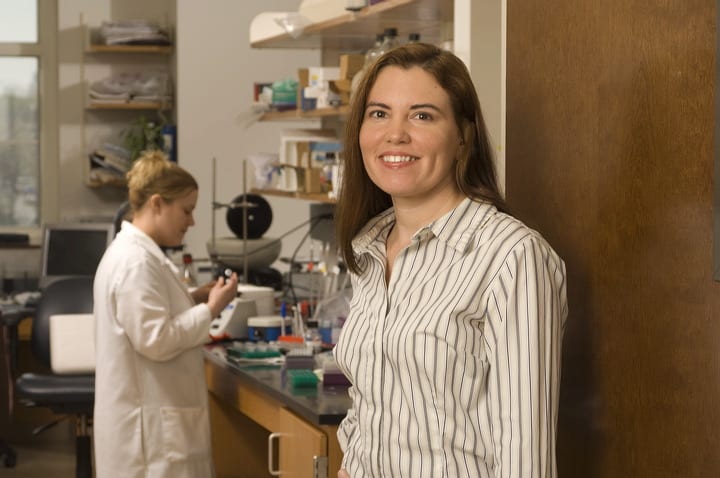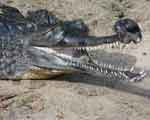The Wall Street Journal has covered the research of SMU’s Anne Lincoln, an assistant professor in the Department of Sociology. The article “Is Science Incompatible With Family?” was published Aug. 9 in the online edition of the WSJ.
The research found that nearly half of all women scientists and one-quarter of male scientists at the nation’s top research universities said their career has kept them from having as many children as they had wanted.
The study, “Scientists Want More Children,” appears in the current issue of the journal PLoS ONE. Lincoln authored the study with sociologist Elaine Howard Ecklund of Rice University, Houston.
For the past three years, Ecklund and Lincoln have been studying what junior and senior scientists in physics, astronomy and biology think about discrimination, family life and the state of their careers. They found that both men and women say having a science career means they will have fewer children than they wanted. They also found that women were actually more satisfied with their lives than were men. And having fewer children than wanted has a more pronounced effect on life satisfaction for male scientists.
EXCERPT:
By Rachel Silverman
The Wall Street Journal
Academia has always seemed like an attractive fit for a working parent, with its long summer vacations, flexible teaching and research hours and the possibility of life-long job security with tenureBut academia isn’t as family-friendly as it may seem. For one thing, as we’ve discussed, the timing of tenure is particularly tough for working mothers because tenure is often decided during peak childbearing years. Now a new study finds that academia isn’t a paradise for working fathers either, at least in the sciences.
Nearly half of all female scientists and one-quarter of male scientists at the nation’s top research universities said their career has kept them from having as many children as they had wanted. That’s according to a new study, “Scientists Want More Children,” by sociologists Elaine Howard Ecklund of Rice University and Anne Lincoln of Southern Methodist University (SMU), and published in the current issue of the journal PLoS ONE.
Survey data from more than 30 research universities and 2,500 scientists in physics, astronomy and biology, found that both women and men reported they had fewer children than they wanted as a result of having a career in science. The researchers found that long hours and the pressure of getting grants and publishing papers to make tenure, made academic science careers tough on family life.
When the researchers did more analysis, they found that women were actually more satisfied with their work-and-family lives than men. “The fact that having fewer children than desired has a greater impact on men’s life satisfaction is an important finding because most research on the relationship between family life and pursuing a career in science has focused almost exclusively on the lives of women,” said Rice’s Ecklund.
SMU is a nationally ranked private university in Dallas founded 100 years ago. Today, SMU enrolls nearly 11,000 students who benefit from the academic opportunities and international reach of seven degree-granting schools. For more information see www.smu.edu.
SMU has an uplink facility located on campus for live TV, radio, or online interviews. To speak with an SMU expert or book an SMU guest in the studio, call SMU News & Communications at 214-768-7650.
 The Wall Street Journal has covered the research of SMU’s
The Wall Street Journal has covered the research of SMU’s 



